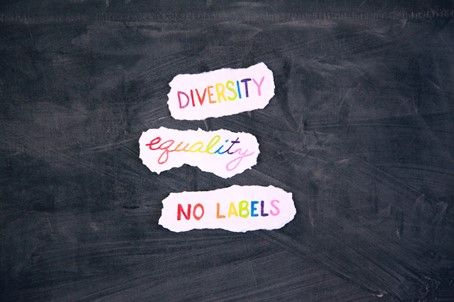
Generation labels – do we need them?
Author: Technical University of Kosice | Photo: by Sharon McCutcheon from pexels.com
Millennials, Gen Zs, Baby Boomers…each generation has its name and is supposedly defined by its characteristics based on the year of birth. You may have heard that Baby Boomers are though workaholics with strong working morale and Millennials can do magic with technology but are somewhat lazy. But don´t these labels do more damage than good?
The practice of naming generations goes back to the 19th century. Social scientist Philip Cohen claims there is no empirical evidence for imposing the character traits that are believed to define a specific generation. What´s more, they tend to be rather generational stereotypes than facts.
The main problem is that generation is too wide. You can have two people from the one generation born on two opposite ends of that period and their experiences and therefore characteristics can be different.
Cohen makes a valid point when explaining this example: the tennis champion Williams sisters are a generation apart,[1] Venus, born 1980, is part of “Gen X”; Serena, born 1981, is a “Millennial.” Meanwhile, Donald Trump and Michelle Obama are both in the same generation. The former was born in 1946 while the latter was born in 1964, making them both “baby boomers“[2], even though there is almost 20 years apart them.
But do not make mistakes. Cohen and his fellow scientists are not trying to say that the whole concept of generation is wrong. No, generations are one of many analytical lenses researchers use to understand societal change and differences across groups. While there are limitations to the generational analysis, it can be a useful tool for understanding demographic trends and shifting public attitudes. They are simply proposing that external circumstances, the global situation and historic events are much more likely to influence the typical characteristics of a group of people than the year they were born.
What´s more, we must not forget that the personality of an individual plays a crucial role when it comes to traits and that you can find Boomers that are more technologically fluent than some of the members of Gen Z. That is because every generation is diverse and generalisations shouldn´t be made on just arbitrary lines between birth years and attributes.
So what solution do they propose? There are lots of options to use instead of these generational “labels”. We can simply describe people by the decade they were born, which would narrow the period down and reflect the historic circumstances more accurately. Or we can define cohorts specifically related to a particular issue — such as 2020 school kids. Whatever solution we choose, we should always keep in mind that a person is always an authentic individual, no matter to which age cohort belongs. The opinions of the author are their own and do not necessarily reflect the opinions of the Consortium
[1] Pew Research Centre: https://www.pewresearch.org/st_18-02-27_generations_defined/
[2] P.N. Cohen: Opinion: Generation labels mean nothing. It´s time to retire them: https://www.washingtonpost.com/opinions/2021/07/07/generation-labels-mean-nothing-retire-them/





